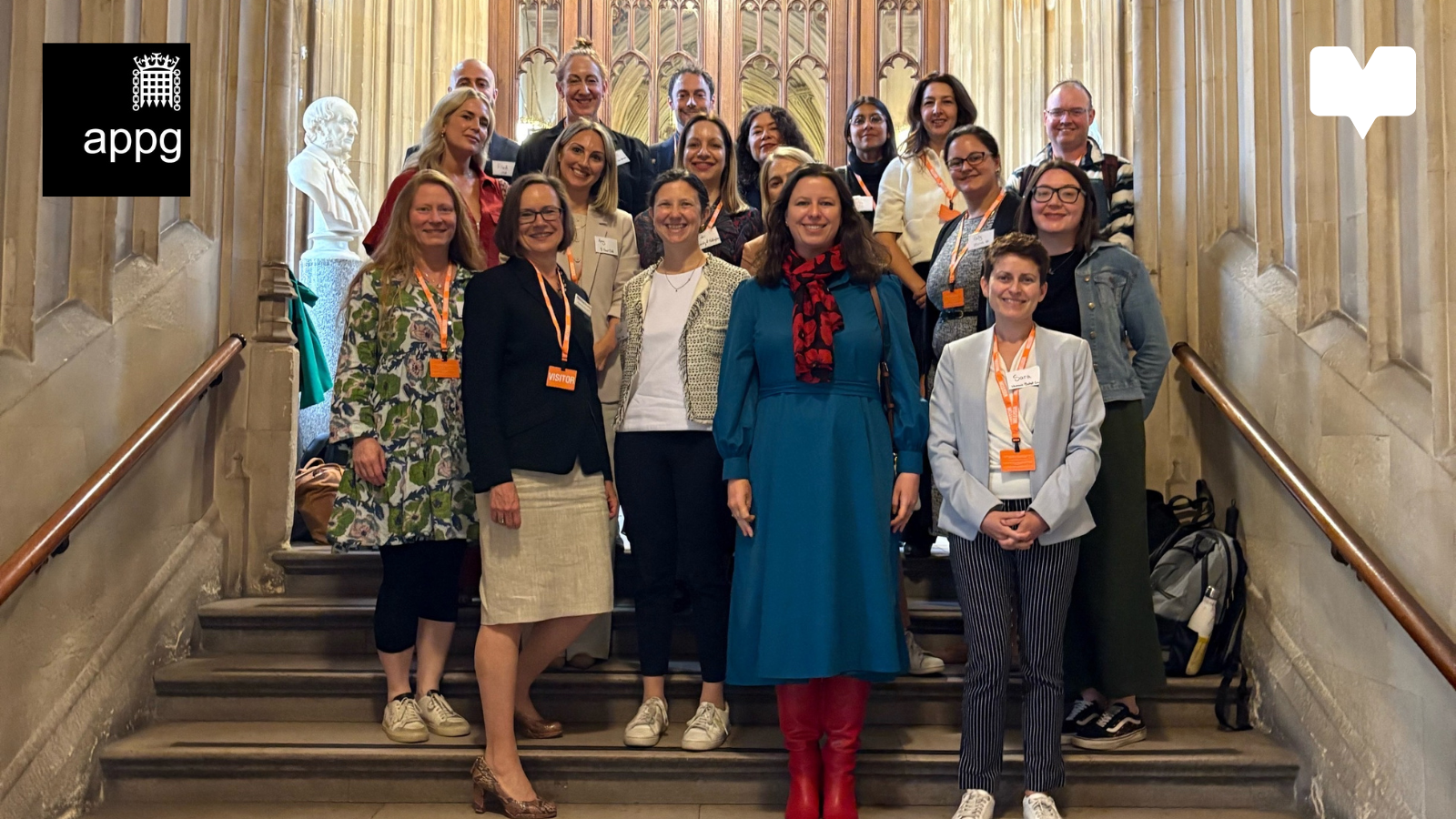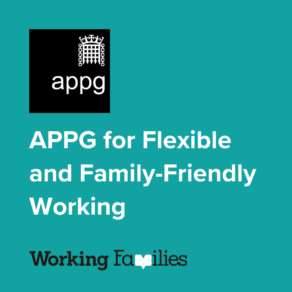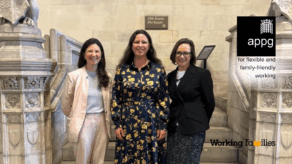A united vision: APPG meeting brings advocates together to achieve a better deal for new parents
Published: 23 May 2025

Voices from across the business and charity sectors joined parliamentarians at Westminster to champion better parental leave. Co-chaired by Sarah Russell MP and Baroness Penn, and facilitated by Working Families, it was the first informal meeting of the reformed All-Party Parliamentary Group for Flexible and Family-Friendly Working, and brought together insights from employers, campaigners and researchers.
The roundtable event discussed both the challenges of the outdated system and how the anticipated government review into parental leave can be most effective in leading to reform that supports modern families and employers.
The meeting coincided with the release of Working Families’ latest research, the Working Families Index. The findings revealed that:
- 4 in 10 mothers said they couldn’t take the time they needed after the birth of their child
- Mothers concerned about finances return to work eight weeks earlier than those without money worries
- 7 in 10 fathers who didn’t take their full two weeks of statutory paternity leave said finances were the reason
- 1 in 5 fathers had no entitlement to parental leave at all.
There was a strong consensus in the room that reform must be accompanied by a cultural shift, away from outdated gender roles and workplace stigma.
Mother Pukka Founder and Working Families ambassador Anna Whitehouse, said:
This review can’t come soon enough. Right now, the system is failing dads who want to show up for their families, and it’s failing mums who are left to carry the load alone or forced back to work before they’re ready. It doesn’t have to be this way. Parents deserve better – and so do our children. We need a parental leave system that values both parents from day one, and gives families the support they need to thrive.
Consensus also emerged in ensuring any future reform works for everyone;
- The self-employed, of which there has been a 46% rise of self-employed mothers since the 2008 financial crash, and kinship carers were flagged as people who miss out on entitlement.
- Attention also needs to focus on tackling the ‘lost demographic’ of small and medium-sized employers, who account for 60% of UK businesses.
Those in attendance called for bold but practical measures, including:
- Non-transferable blocks of leave for fathers/partners, including the self-employed
- Statutory pay set at a level parents can afford to take
- Simplifying shared parental leave, and ensuring mothers don’t have to give up their own entitlements for partners to take time off
- Transparency and better communication of leave policies to help drive a “race to the top” in employer practice
Examples from progressive employers such as Zurich – where improved parental leave policies have led to a doubling of both part-time senior women and men – were cited as models for change.
Jane van Zyl, CEO of Working Families said:
Currently, there is a huge gap in the parental leave families need and what they are getting, which is borne out by our research. Having so many expert voices around the table today moves this vital conversation forward and will help to strengthen the upcoming Government review, so that parents will no longer have to make difficult decisions at a vulnerable time because they have access to the leave they need.
Kathy Jones, CEO of the Fatherhood Institute said:
The UK’s statutory paternity offer is at the bottom of the international league table, and Britain’s parents are crying out for a modernised system – one that gives them real choices about earning and caregiving, rather than boxing them into 1950s gender stereotypes. Too many women’s careers fall off a cliff when they become mothers. Too many men miss out on being fully involved in their children’s care. For too long we’ve left this as a problem for employers to solve. Governments in many other countries understand that investing in dads is an investment in mothers, in children, in economic growth and in a fairer future. We need ours to do the same.
Baroness Penn said:
The UK’s system of parental leave is failing families and needs urgent reform. And we know what works – with mums and dads each needing a proper period of leave paid at a decent level. It’s essential the government review doesn’t reinvent the wheel but uses the wealth of evidence that is already out there to come forward with practical plans to change the system quickly for new parents.
Sarah Russell MP, said:
Today’s discussion showed just how much common ground there is when it comes to improving parental leave and is a powerful reminder that meaningful change is possible when voices from every corner are heard. Ahead of the anticipated government’s review, this meeting marks a crucial step toward a fairer and more supportive parental leave system.
Having discussed where evidence can make the most impact for both future legislation and for employers to come on board, the APPG intends to put forward the insights to the Government, to urge the launch of and inform the upcoming review, in the hope that it makes the right kind of change.
This follows the launch of a joint statement by a coalition of leading charities and academics, coordinated by Working Families, calling for an overhaul of the UK’s parental leave system. The full statement can be read here: Coalition of Charities and Academics Calls for Overhaul of UK Parental Leave System

APPG for Flexible & Family Friendly Working
Bringing together cross-party support for flexible working, so that everyone can enjoy the benefits, including families, employers, and the economy.

Co-Chairs and Officers of the APPG for Flexible and Family-Friendly Working
Meet the Co-chairs and officers of the APPG for Flexible and Family-Friendly Working

APPG Sponsors and Partners
Find out more about the founding sponsors of the APPG for Flexible and Family Friendly Working.

All-Party Parliamentary Group for Flexible and Family-Friendly Working reforms
The All-Party Parliamentary Group (APPG) for Flexible and Family Friendly Working has been reformed at the House of Commons.
